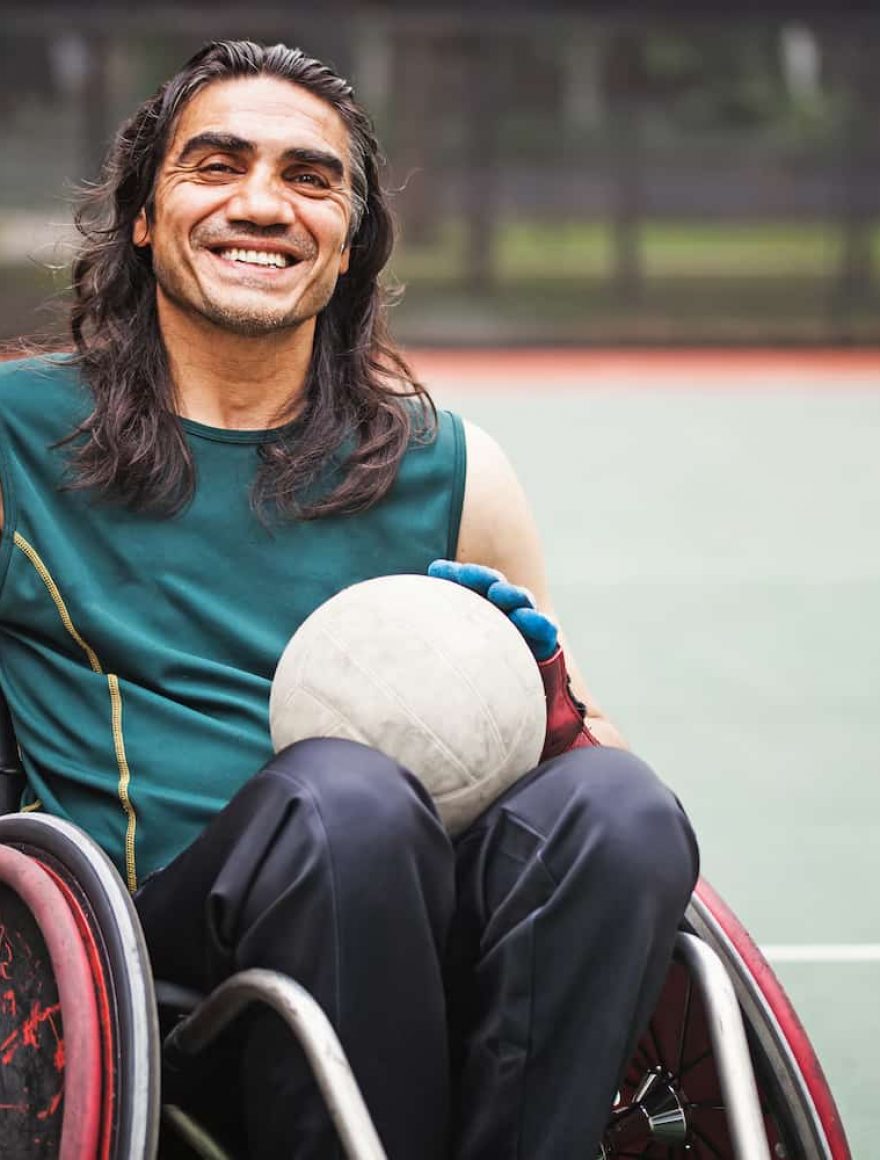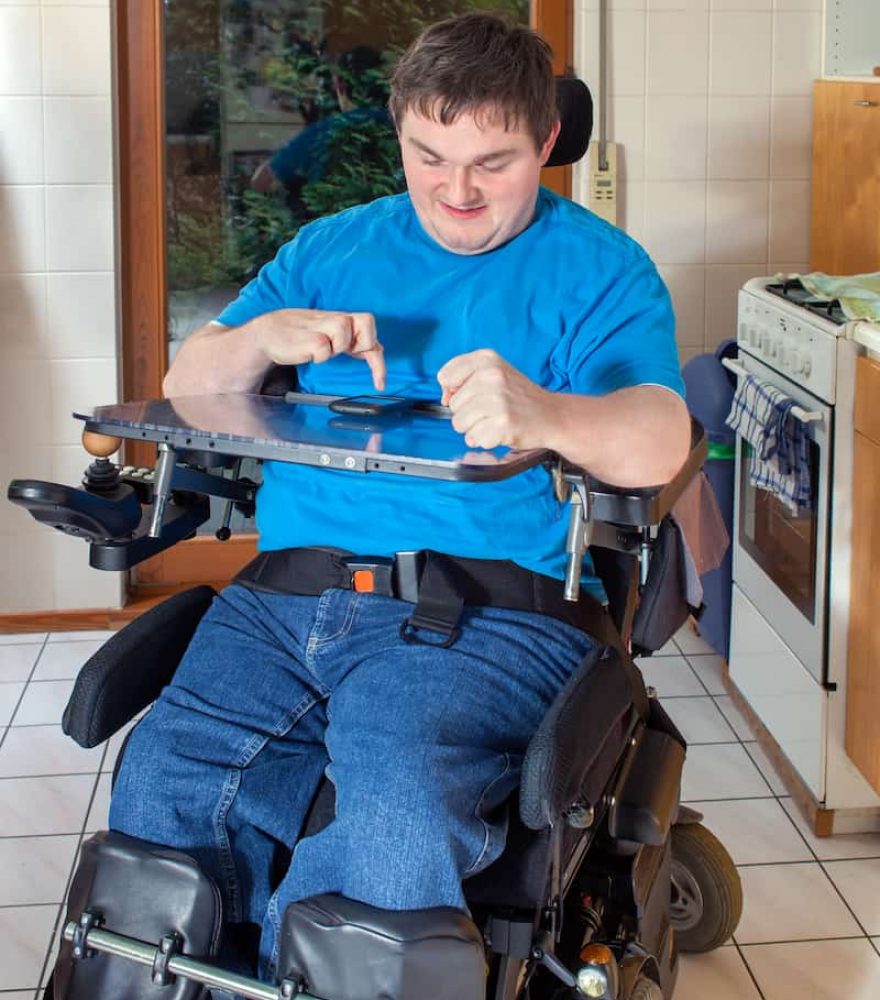To help you get ready for your first National Disability Insurance Scheme (NDIS) planning conversation, there are a number of things that you should consider and write down. By taking the time to answer some simple questions, you can be better prepared for the questions that you will be asked during your meeting. Your pre-planning questions can be done by yourself or with a family member, carer or someone from United Disability.
Here is a list of questions and requirements that you may want to think about or have prepared for your planning meeting.
Your personal details – You will be asked your name, age and address.
Your primary disability – You will be asked to provide details about your primary disability. It is recommended that you have copies of any reports or assessments you might have.
Your current support – You will be asked about the current supports you are receiving from family, friends, carers, your local community and service providers.
Daily activities –the NDIS will ask you some questions about your daily activities and needs. It is recommended that you consider your abilities and what equipment, accommodation or assistance you might need to look after yourself and your place of residence.
Safety and security – You will be asked if there are any areas of your life where you need additional support or don’t feel safe and secure.
Goals and aspirations – It is great to think about your goals and aspirations for the next year and beyond. Are there any specific goals you would like to achieve? Goals can include giving you greater access to choice, education, better accommodation, health and community activities.
Managing your plan – Once your plan has been formalised, you will need to consider how you want to manage your plan long term. Will you be managing your plan yourself, through a nominee (such as a family member), through a registered provider or via the NDIA support services? If you are unsure about your options, one of our friendly team members are available to assist.
Starting your plan – At the end of your planning conversation, you will be asked to discuss your next steps, including your plan approval and fund access.
Our disability care providers in Brisbane, the Gold Coast and surrounding areas are happy to answer any questions you have. We are committed to helping you secure the care that is right for you.
Your NDIS First Plan serves as the start of a lifelong relationship with the NDIA. Your NDIS Plan was initially focused on the continuity of your existing support when transitioning to the scheme. The implementation of the First Plan, allows clients adequate time to assess their needs, develop goals and explore the available options for their next plan.
Your next plan may include additional supports that provide you the opportunity to explore options to get involved in your local community – such as sports clubs and community groups. Your first plan was designed to be reviewed after 12 months.
Depending on your situation, there are numerous people who can help you implement your plan and help you begin receiving supports. You can start your plan on your own if you are self-managed or with the support of a Local Area Coordinator, Support Coordinator or Nominee.
The NDIS provides a ‘Getting Started Checklist’ to help you begin accessing your community, mainstream and funded supports and get the most out of your NDIS plan.
For participants who receive help from a Support Coordinator to implement their plan – your plan will include funding for a Support Coordinator to help you implement your plan. Once your plan is approved, this person will contact you to discuss your plan, help you access supports and discuss your longer-term goals under the NDIS.
For participants who are self-managing – you will be contacted by the NDIA once your plan is approved and they will talk to you or your nominee about the opportunities and responsibilities of self-managing your plan.
It is important to think about how your First Plan is working for you – what is good and what is not. This will help you prepare for your Plan Review at the end of the 12-month period.


Once your plan is approved and you receive your funding, all previous funding for your disability supports will be stopped effective immediately. Therefore, to ensure your existing services continue as per normal, it’s important to let United Disability know that your plan has been approved as soon as you receive it.
Depending on your situation, there are a range of people who can help you implement your plan and ensure you start receiving supports. You can start your plan on your own if you are self-managed or with the support of a United Disability Support Coordinator.
Our Support Coordinators assist you in strengthening your ability to coordinate and implement your plan, helping you to boost your formal and informal network and coordinate a range of both funded and mainstream supports that you choose.
Your United Disability Care Support Coordinator will assist you in achieving your plan goals, through the provision of:
Before you start your Plan Review, it can be helpful for you to explore options to get involved in your local community through activities such as sporting clubs, local theatres, special interest groups and community gardening. The below steps should be considered when reviewing your NDIS plan:
Write the above points down in anticipation of your review as this may help with your preparation. Our disability support providers on the Gold Coast, in Brisbane and surrounds are happy to provide further assistance.
As a Participant of the NDIS, you have the option to have a supporter present during your Plan Review. Your supporter may be a friend, family member or carer. If you don’t have anyone to support you during your review, you can seek the assistance of a Local Area Coordinator (LAC) or a Support Coordinator from a registered partner. United Disability have Support Coordinators and are happy to help. Call us on 1300 454 850 as soon as you have your meeting date and this will provide us enough time to make a Support Coordinator available to you.

As part of the NDIS framework, you decide how you want to manage your plan and if you need support. For example:
You may choose to manage it yourself (also known as self-managed). This is where the NDIS provides you with the funding to pay directly to the people and organisations that support you.
You may wish to nominate someone to help you manage your plan. This is a trusted person (also known as a Plan Nominee) that will make payments on your behalf to the people and organisations that support you.
You can use the services of a registered Plan Management provider such United Disability. We will then make payments on your behalf to the people and organisations that support you. Plan Management is funded as part of your plan and will not take away any funding allocated to you as a person living with a disability. Our team can help manage the payments to your service providers and provide reports to NDIA. Additionally, you can ask the NDIS to manage all or part of your plan on your behalf.
Auslan is short for Australian sign language, a language developed by and for Australians who are deaf or hearing impaired. The NDIS provides some funding for Participants with hearing loss or users of Auslan. Providing access to interpreting and translating services for assistance with everyday life.
Specialist Disability Accommodation (SDA) is housing that enables people with very high needs to receive the supports they need. SDA will provide funding towards the cost of the physical environment for eligible NDIS Participants to live and receive their daily supports.
Housing is an important issue for the NDIA. Affordable, stable housing is needed to support people with a disability in achieving their goals. The NDIS will provide ongoing support for daily living but has not been designed to take responsibility for the housing needs of Participants, unless the participant has very extensive needs and requires special accommodation to enable them to receive optimal support.
The National Disability Insurance Scheme (NDIS) refers to this as Specialist Disability Accommodation (SDA). Participants who are assessed as needing SDA as part of their reasonable and necessary supports will receive funding to cover the costs of SDA.
Assistive Technology can vary. As an approved NDIS Participant, you may be eligible to receive funding for some of the below items:
Plus, much more.
Assistive Technology does not include items for treatment or rehabilitation, ramps or pathways, motor vehicles or something that does not include a device (i.e. medicine or training).